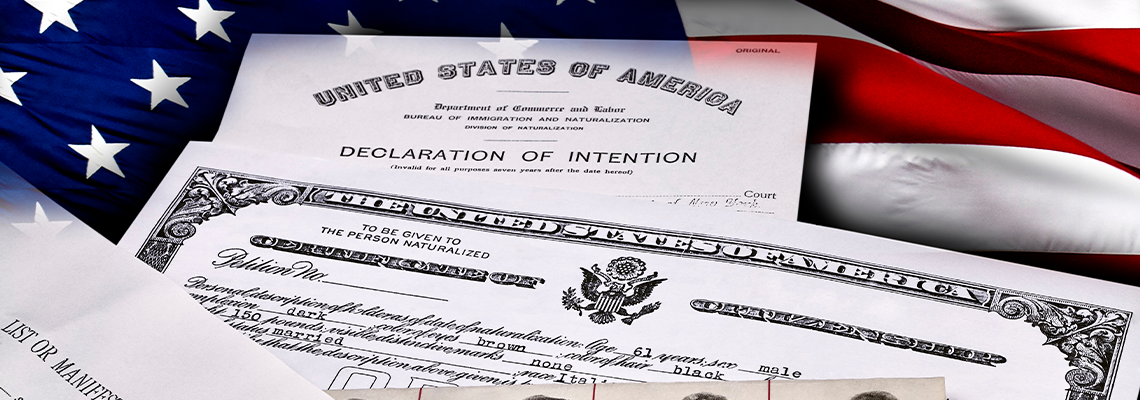
Driving while impaired (DWI) offenses are serious violations of North Carolina's traffic laws. For individuals who aren’t U.S. citizens or permanent residents, these violations can have significant consequences on their immigrant status.
At Herhusky Law Office, PLLC, located in Raleigh, North Carolina, we know how a DWI charge can impact proceedings, visa eligibility, and green card status, and even lead to deportation in some cases.
Traversing immigration law can be challenging for many individuals, which is why it’s crucial to work with legal professionals. Before you make the call, it's important to understand the relationship between DWI offenses and immigrant status.
How Are DWIs Handled in North Carolina?
A DWI in North Carolina is a criminal offense that occurs when an individual operates a vehicle under the influence of alcohol or drugs. According to the North Carolina Department of Public Safety, in North Carolina, the legal limit for blood alcohol concentration (BAC) is 0.08% for drivers aged 21 or older.
However, drivers under 21, commercial drivers, and drivers with certain prior convictions may face stricter standards.
For non-U.S. citizens, a DWI conviction can raise significant concerns regarding their immigrant status. The implications of a DWI conviction may vary depending on the type of visa the individual holds, their immigrant history, and whether the offense is considered a deportable crime under U.S. immigration law.
Consequences of a DWI Conviction
DWI offenses can result in far-reaching consequences and can affect both short-term and long-term immigration status in the United States. The consequences of a DWI on an immigrant's status will depend on several factors, including the specific charge, whether it was a misdemeanor or felony, and the individual’s current immigrant situation.
Visa Holders and Non-Immigrant Status
For individuals who are in the United States on a non-immigrant visa (e.g., a tourist visa, student visa, or work visa), a DWI conviction can have serious repercussions. A DWI conviction may result in the denial of future visa applications or adjustments of status.
In some cases, immigration authorities may deem the individual as inadmissible to the U.S. This can occur when the offense involves alcohol or drugs, as it may be seen as an indication of substance abuse or criminal behavior.
Tourist and business visas (B1/B2): If an individual on a B1/B2 visa is convicted of a DWI in North Carolina, this could raise questions during future visa renewals or visa applications. A DWI charge doesn’t automatically make someone inadmissible, but the conviction may suggest moral turpitude, which could lead to the denial of future visas or entry into the U.S.
Student visa (F1): A DWI conviction could complicate a student's future ability to maintain or extend their student visa. Students who are caught driving under the influence could also be at risk of losing their status in the U.S. if the offense is considered severe enough by immigration authorities.
Work visas (H1-B, L1, etc.): For individuals with a work visa, a DWI conviction could affect their ability to extend or adjust their visa status. The U.S. Citizenship and Immigration Services (USCIS) may view a DWI as an indication that the individual isn’t a person of "good moral character," which could harm their visa renewal process.
Green card holders, also known as lawful permanent residents (LPRs), face different challenges when it comes to DWI offenses.
Green Card Holders (Lawful Permanent Residents)
A DWI conviction could impact their permanent resident status, especially if it results in other charges such as endangerment, reckless driving, or drug-related offenses.
Deportability: While a DWI conviction by itself isn’t typically grounds for deportation, it can trigger deportation if the individual is involved in other criminal activities or violations that fall under the category of “aggravated felonies” or “crimes of moral turpitude.” Certain serious DWI offenses, such as those involving vehicular manslaughter or repeat DWI offenses, could potentially fall into these categories.
Re-entry issues: If a green card holder is convicted of a DWI and leaves the country, they may face difficulties when re-entering the U.S. Immigration officers may consider the criminal conviction when determining whether to allow them back into the U.S., particularly if the DWI is linked to other offenses.
An immigrant who's been convicted of a DWI may be at risk of deportation if the offense is classified as an aggravated felony, a crime of moral turpitude, or if it’s linked to another deportable offense.
Deportation and Removal Proceedings
Under U.S. immigration law, aggravated felonies are defined as serious crimes that can result in deportation. These crimes often include instances of manslaughter, homicide, or repeated DWI convictions that involve bodily harm.
Aggravated felony: If a DWI offense involves any form of manslaughter or results in a fatality, it may be considered an aggravated felony, which can lead to automatic deportation. This is particularly true for DWI offenses that result in the death of another person. Even a single aggravated felony conviction can trigger deportation, making it essential for any green card holder to know the implications of a DWI charge.
Crimes of moral turpitude: In some cases, a DWI offense may be viewed as a crime involving moral turpitude. Although this isn’t automatically the case for every DWI conviction, if the crime is considered to be morally reprehensible, such as driving under the influence with extreme recklessness, it may be considered a deportable offense.
Re-entry bans: In cases where someone is deported for a DWI-related crime, they may face re-entry bans. We’ve seen that these bans can range from a few years to a lifetime ban, depending on the nature of the offense and the individual’s immigrant history.
Additionally, for individuals who are in the process of applying for U.S. citizenship (naturalization), a DWI conviction can complicate the application.
U.S. Citizenship Applications
According to the U.S. Citizenship and Immigration Services, U.S. immigration law requires applicants to demonstrate "good moral character" for five years before they apply for citizenship. A DWI conviction can be seen as a violation of good moral character, potentially resulting in a delay or denial of the naturalization application.
In our experience, even if the DWI conviction occurred outside of the five-year period, it could still be considered when assessing an individual’s overall character. This is especially true if the individual has a history of alcohol or drug-related offenses or if the DWI resulted in other criminal charges.
Factors That Can Influence Immigration Consequences
Not all DWI offenses are treated the same under immigration law. Several factors can influence how a DWI affects a person's immigrant status, including the following.
Aggravating Factors and Prior Convictions
If an individual has a history of multiple DWI convictions, or if the DWI charge involved aggravating factors such as high BAC, accidents, or injuries, the immigration consequences may be more severe. Aggravating factors make the offense more serious, which may influence how immigration authorities view the conviction.
State Laws vs. Federal Immigration Law
State laws, including those in North Carolina, primarily deal with the criminal aspects of a DWI offense. However, immigration law is governed by federal law. Even if a DWI is a misdemeanor under state law, it may be classified differently under federal immigration law, especially if the offense involves aggravating circumstances.
Involvement of Drugs or Other Crimes
In some cases, DWI offenses may also involve illegal drugs or other criminal activity. If a DWI charge is accompanied by charges for driving under the influence of drugs or being caught with illegal substances, this may further complicate the individual’s immigrant situation.
Drug-related offenses, in particular, are a serious concern for those who have immigrated, as they can result in severe consequences such as deportation and inadmissibility.
Contact an Immigration Attorney Today
If you're facing a DWI charge, it's in your best interest to consult with an immigration lawyer. At Herhusky Law Office, PLLC, we serve clients in Raleigh, Durham, Greensboro, Fayetteville, Charlotte, Wilson Wilmington, and Greater North Carolina. Contact us today to schedule a consultation.


